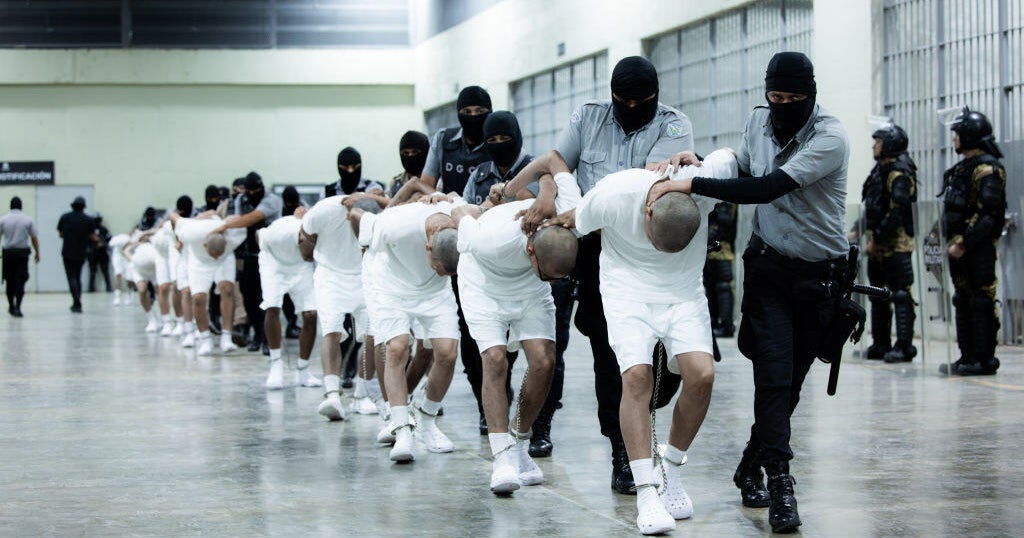The United States government, represented by Attorney General Pam Bondi and other high-ranking Justice Department officials, has indicated that it may invoke ‘state secrets privilege’ to prevent a federal judge from accessing specific information about two deportation flights involving alleged members of the Tren de Aragua gang. This was revealed in court filings made public on Wednesday.
The matter in question relates to two flights bound for El Salvador that were carrying alleged gang members for deportation. The government’s stance is that the information about these flights falls under the realm of state secrets and is therefore protected from judicial scrutiny.
The government’s position was outlined in a strongly worded filing that criticized D.C. District Chief Judge James Boasberg, who had demanded detailed information about the flights. The Justice Department, in its filing, stated, “Continuing to beat a dead horse solely for the sake of prying from the Government legally immaterial facts and wholly within a sphere of core functions of the Executive Branch is both purposeless and frustrating to the consideration of the actual legal issues at stake in this case.” The filing was signed by not only Bondi, but also by Deputy Attorney General Todd Blanche and top Justice Department officials Emil Bove and Chad Mizelle.
At the heart of the government’s argument is the assertion that Judge Boasberg’s demands for detailed information about the two deportation flights from the U.S. to El Salvador on Saturday constitute a severe overreach of judicial power. They argue that these demands infringe on the President’s powers under the Alien Enemies Act and his inherent Article II powers.
The Alien Enemies Act, enacted in 1798, permits the arrest, detention, and deportation of foreigners without the usual due process protections stipulated in U.S. immigration law. This includes the right to see a judge and request asylum. Instead, those affected by the Act may be treated as enemy aliens and processed under America’s wartime laws. President Trump had invoked this act on Saturday to facilitate the deportation flights to El Salvador.
However, Judge Boasberg had attempted to block these flights on Saturday and had ordered them to be turned around if they were already in the air. The government countered this by stating that the flights were already in international airspace when the judge issued his order and, therefore, he did not have jurisdiction to order their redirection. The two planes did eventually land in El Salvador on Saturday night, according to the Trump administration.
In the Justice Department’s filing on Wednesday, it was argued that revealing some of the operational information to the court “could implicate the affairs of United States allies and their cooperation with the United States Government in fighting terrorist organizations.” The department further argued that such disclosure “would unquestionably create serious repercussions for the Executive Branch’s ability to conduct foreign affairs.”
Judge Boasberg, who had expressed frustration at the government’s lack of details about the flights and deportation operations during a hearing on Monday, in response, had ordered the government to answer a range of questions by noon on Thursday. These included questions about the departure times of the planes, their points of departure, when they exited U.S. airspace, when they landed, and when the alleged gang members were transferred out of U.S. custody.
In a counter to this order, Bondi criticised Judge Boasberg for requesting this information, accusing him of “micromanagement of immaterial fact finding.” She argued that the court had spent more time trying to gather information about the government’s flight schedules and foreign relations than it had in investigating the facts before certifying the class action in this case. This situation, they argued, was a reflection of how the case had become distorted, with “digressive micromanagement” outweighing the consideration of the case’s legal issues.
The Justice Department continued to argue that complying with the questions posed by Judge Boasberg would subject the government to “a serious risk of micromanaged and unnecessary judicial fishing expeditions and potential public disclosure.” They also dismissed the argument that their responses to his questions would compromise sensitive information, citing that the Secretary of State had already revealed many operational details of the flights, including the number of people involved, many of their identities, the facility to which they were brought, their manner of treatment, and the time window during which these events occurred.
This case stemmed from a federal civil lawsuit filed against President Trump and other administration officials by five Venezuelan men who were in immigration custody in Texas and New York local jails. Judge Boasberg’s ruling prevents the deportations of the plaintiffs and migrants for a period of 14 days. However, the Justice Department has since appealed the case to the D.C. Circuit Court of Appeals.
Lawyers representing the Venezuelan migrants suing the Trump administration warned that if the President was not prevented from invoking the Alien Enemies Act, it could potentially lead to anyone being treated as an enemy alien. They expressed their concerns in a filing to the appellate court, stating, “The implications of the government’s position are staggering. If the President can designate any group as enemy aliens under the Act, and that designation is unreviewable, then there is no limit on who can be sent to a Salvadoran prison, or any limit on how long they will remain there.”
Despite Judge Boasberg’s ruling to prevent deportations for 14 days, 261 people were deported to El Salvador on Saturday, 137 of whom were removed under the Alien Enemies Act due to alleged gang ties, as reported by a senior administration official. The Trump administration is hoping to deport about 250 other alleged Tren de Aragua gang members who are currently in the United States, as revealed by court filings.









